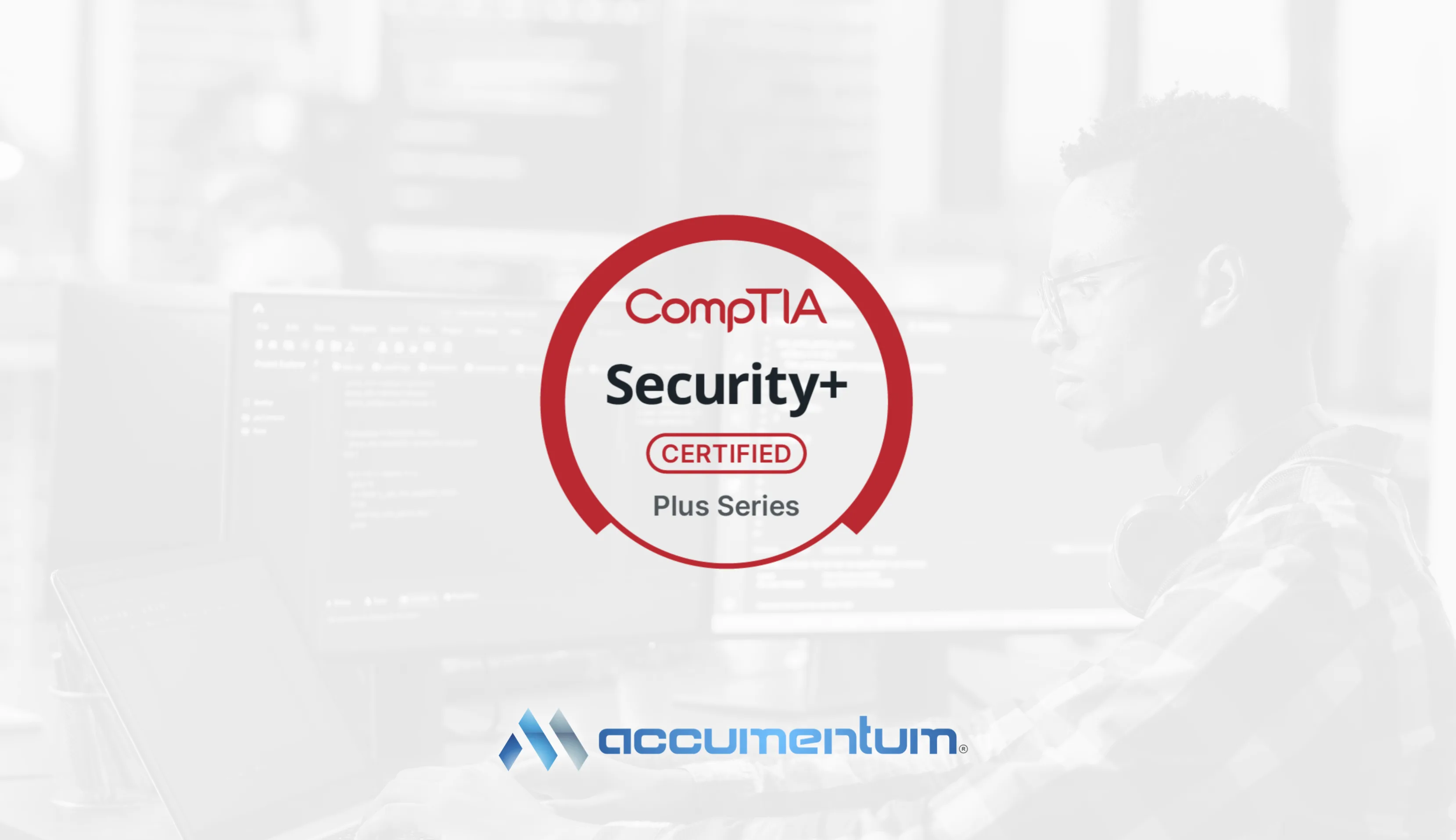CompTIA Security+ Certification Training Course
Course Overview

Course Objectives
- Ideal for IT professionals and aspiring cybersecurity specialists seeking to build foundational skills and earn the CompTIA Security+ certification.
- Suited for administrators and analysts responsible for securing IT systems and implementing effective security measures.
- Perfect for technical professionals managing networks or infrastructure who aim to strengthen their expertise in threat mitigation and risk management.
- Designed for individuals with basic IT experience looking to advance their careers by mastering essential cybersecurity principles and practices.
Who Should Attend
- IT professionals responsible for implementing and maintaining security controls to protect organizational systems and data.
- Individuals tasked with managing network security, threat detection, and incident response to safeguard IT environments.
- Those seeking to ensure compliance with industry standards and organizational security policies through effective cybersecurity practices.
- Aspiring cybersecurity specialists and IT administrators aiming to enhance their skills in risk management and secure system design.
Prerequisites
- A minimum of two years of IT experience with a focus on security, or equivalent knowledge, as recommended for CompTIA Security+ certification eligibility.
- Basic understanding of IT concepts, such as networking, systems administration, or security fundamentals, to support learning core cybersecurity topics.
- Familiarity with entry-level cybersecurity practices, including threat detection, access control, or basic risk management, to enhance course comprehension.
- Readiness to engage with technical and practical security concepts, preparing participants for the course and the CompTIA Security+ certification exam.
Course Content
- Identify common types of threats, including malware, phishing, and social engineering attacks.
- Analyze attack vectors and techniques used to exploit vulnerabilities in systems and networks.
- Understand vulnerability scanning and assessment tools to detect weaknesses.
- Explore methods for mitigating risks associated with emerging threats.
- Learn secure network architecture concepts, including segmentation and zero trust models.
- Understand the principles of designing secure systems and applications.
- Explore virtualization, cloud security, and containerization best practices.
- Apply defense-in-depth strategies to enhance organizational security posture.
- Configure secure protocols, encryption, and authentication mechanisms for systems and networks.
- Implement secure wireless networking and mobile device management solutions.
- Deploy access control models, including role-based and attribute-based access controls.
- Apply security configurations to endpoints, servers, and cloud-based environments.
- Develop incident response plans, including preparation, detection, and recovery processes.
- Learn techniques for analyzing and responding to security incidents and breaches.
- Understand forensic investigation methods and evidence handling procedures.
- Explore business continuity and disaster recovery planning to ensure operational resilience.
- Understand regulatory and compliance frameworks, such as GDPR, HIPAA, and PCI-DSS.
- Conduct risk assessments to identify, prioritize, and mitigate organizational risks.
- Develop and implement security policies, standards, and procedures.
- Explore the role of governance in aligning security with business objectives.
- Implement identity and authentication solutions, including multi-factor authentication (MFA).
- Understand access control principles, such as least privilege and separation of duties.
- Manage identity lifecycle processes, including provisioning and deprovisioning.
- Explore single sign-on (SSO) and federated identity management systems.
- Understand cryptographic concepts, including symmetric and asymmetric encryption.
- Implement public key infrastructure (PKI) for secure key management and certificates.
- Explore cryptographic protocols, such as SSL/TLS and IPsec, for secure communication.
- Analyze the role of cryptography in protecting data at rest and in transit.
- Configure firewalls, intrusion detection/prevention systems (IDS/IPS), and VPNs.
- Understand network security monitoring and logging for threat detection.
- Implement secure network design principles to prevent unauthorized access.
- Explore techniques for securing remote access and cloud-based networks.
- Conduct vulnerability assessments and penetration testing to identify weaknesses.
- Analyze security assessment results to prioritize remediation efforts.
- Understand security testing methodologies, including white-box and black-box testing.
- Develop strategies for continuous security monitoring and improvement.
- Manage security operations, including monitoring, logging, and alerting systems.
- Implement patch management and configuration management processes.
- Understand the role of security information and event management (SIEM) systems.
- Explore automation and orchestration for efficient security operations.
Course Features
Interactive Learning
Participate in training sessions, discussions, and hands-on labs with experienced instructors.
Practical Scenarios
Engage in real-world exercises and case studies to apply security concepts.
Comprehensive Study Materials
Access extensive resources, including e-books, video lectures, and practice exams.
Certification Preparation
Receive guidance and tips to successfully pass the CompTIA Security+ certification exam.
Certification Exam
Upon completing the CompTIA Security+ Certification Training Course with Accumentum, you will be fully prepared to take the CompTIA Security+ certification exam. This certification validates your foundational expertise in cybersecurity, risk management, and system protection, demonstrating your ability to secure networks, mitigate threats, and implement effective security controls. Earning the Security+ certification will significantly enhance your career prospects, positioning you for roles that require practical skills in protecting organizational systems, ensuring compliance, and addressing evolving cybersecurity challenges.
Enrollment
Enroll in the CompTIA Security+ Certification Training Course with Accumentum to build foundational cybersecurity skills and earn a globally recognized credential. This course is your pathway to becoming a CompTIA Security+ certified professional. For detailed information and to secure your spot, visit Accumentum's registration page linked below.
